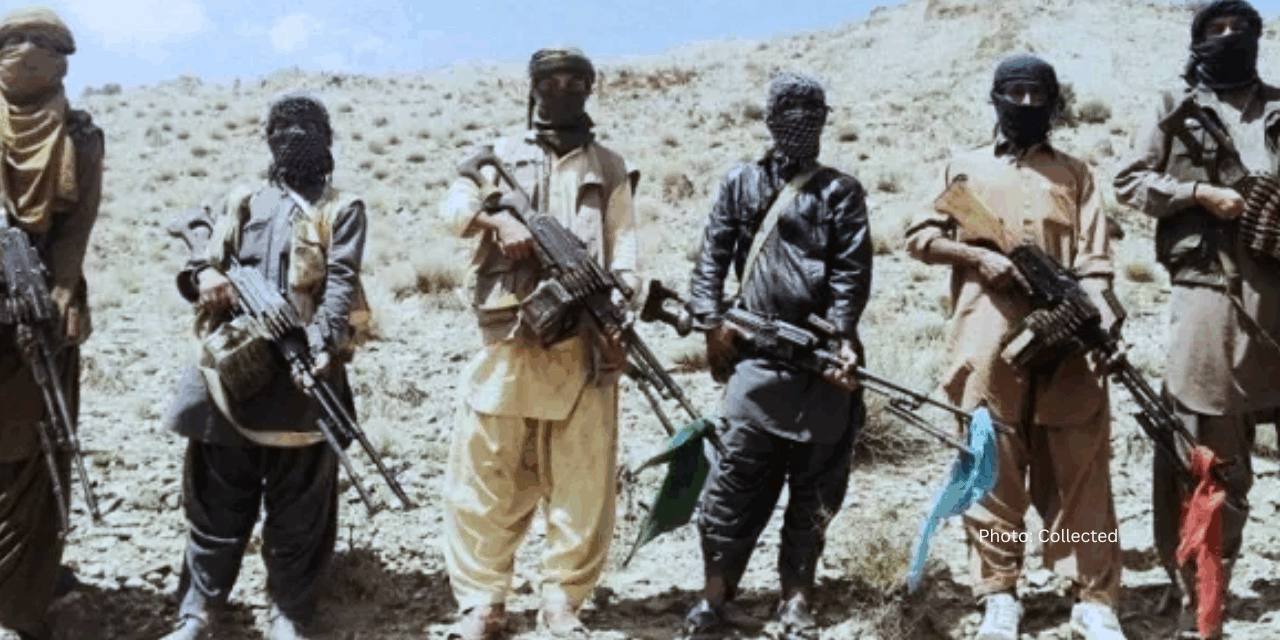There are at least two indigenous Iranian groups who have substantial numbers of people cheering on the strikes of Israel and the United States. The Kurds, you are presumably familiar with from recent conflicts in Syria and Iraq, and also from their longstanding disagreements with the Turkish government in Ankara. The boldest group is the marginal (in Iran) Kurdistan Freedom Party (PAK) which has openly asked for Israeli support for regime change. Others are more cautious:
The major parties—KDPI, Komala, and PJAK—have not endorsed Israel’s attacks on Iran, although their leaders have called events a “golden opportunity” to reshape the future of the country. These opposition groups want regime change, but without certainty about its likelihood or direction, they remain hesitant to trigger uprisings, dispatch peshmergaforces, or activate clandestine cells inside Iran.
Something similar is happening in the southeast of Iran, where members of the predominantly Sunni Baloch ethnic group are sensing opportunity.
Here’s a statement from the secular Free Balochistan Movement:
“The spokesperson of the Free Balochistan Movement said in a statement that the situation in the region is changing rapidly and this transformation could become a rare and significant opportunity for Baloch national independence – provided that those responsible for the Baloch national independence struggle, along with the Baloch people, who are the true source of this movement, establish mutual unity and consensus, consolidate their dispersed national strength into a single front, and maintain unwavering faith in their national power and cause.
“The statement noted that nations always make difficult decisions based on their interests. To benefit from the current developments in the region, it is imperative that we set aside all partisan, group-based, and individual interests and preferences, and adhere to the core principles and regulations of the Baloch independence movement and collective national interests.
“The current regional situation represents a decisive phase for the Baloch nation. Our national identity is facing severe threats under the occupation of Pakistan and Iran and if the Baloch people do not unite at this critical juncture to protect their interests, history will never forgive us for this failure.
“The spokesperson further stated that whether it is the Sunni-majority state of Pakistan or the Shia-led state of Iran, both have spared no effort in committing genocide against the Baloch. However, the way in which Israel is resisting the Iranian state’s expansionism and terrorism is commendable. It is a clear fact that Israel is not an enemy of the Baloch nation. On the contrary, extremist and fundamentalist states like Iran and Pakistan are common enemies of both Israel and the Baloch people.
“The Baloch nation is fighting a battle for survival against these very states, and Israel’s decisive military actions against the Iranian regime are not only encouraging but also represent a positive sign for the Baloch people, who have long suffered under Iranian colonialism.”
The Kurds and the Baloch are not Persian and most of them are not Shi’a, so it’s no surprise that they are not fans of the Iranian regime. Even under the Shah, these groups sought political autonomy in Iran with the greater goal of establishing, respectively, a Kurdish and Baloch nation state.
Of the two groups, the Kurds are the larger, constituting an estimated 10 percent of the Iranian population compared to just two percent for the Baloch. But the Baloch population predominates in a wide but lightly populated geographic area.
Most Balochs live across the border in Pakistan where they have also clashed with the central government. This is a source of concern for Pakistan which has warned President Trump that emboldened independence-seeking Baloch in Iran will cause problems for them if the Iranian regime falls.
Both the Kurds and the Baloch are capable of contributing troops to an uprising against the regime, and they likewise will create a challenge for any subsequent government in Teheran, and certainly for any foreign occupation forces if those forces don’t grant them the autonomy they seek.
I mention all of this because I feel like Iran is poorly understood in the West, even among elected officials responsible for setting policy and making decisions about war and peace. Everyone knows that the regime is unpopular among the younger generations and urban and intellectual populations. I don’t think people realize that there are substantial ethnic and sectarian opponents who chafe under the fundamentalist government of the mullahs and don’t feel like true members of the Iranian community. On the ethnic front, there are Arabs and Azeris who also have complicated feelings. Members of the Baháʼí Faith are intensely persecuted in Iran.
In Iran, where the Baha’i religion was founded, universities under the government’s direction refuse to admit Baha’i students. Baha’i cemeteries have been destroyed, and current Supreme Leader Ayatollah Ali Khamenei has confiscated property from Baha’i families. Javaid Rehman, the UN Special Rapporteur on the Situation of Human Rights in the Islamic Republic of Iran stated in his most recent report that “over the past 40 years, the Baha’is, considered to be the largest non-Muslim and unrecognized religious minority in the Islamic Republic of Iran, numbering an estimated 350,000, have suffered from the most egregious forms of repression, persecution and victimization.”
Some of these people don’t want to be part of Iran irrespective of its form of government, but all of them have good reason to hope that the regime falls. Both elements are important.
Foreign opponents of the regime will often point to the oppression of these groups, but they don’t necessarily consider how they can quickly become destabilizing forces if they are emboldened to seek their maximalist demands against any future government. Iran is much different from Iraq, where regime change put the majority Shi’a in charge of a country that had been run by Sunnis for centuries. Regime change in Iran would not bring that kind of immediate sectarian chaos.
Another difference is that Iraq had no experience with more than a farcical level of democracy or representative government. Iran has a democracy, albeit one that is twisted and turned by the authoritarian hand of the Ayatollah. The main problem is the restrictions on who can run for office, and secondarily, the relative lack of power of the legislature. These elements can be corrected fairly easily if there is a leadership willing to allow it and a new constitution that facilitates it.
Likewise, a constitution that better protects ethnic and religious minorities can go a long way toward tamping down agitation for independence and creating more widespread legitimacy for the government. I don’t think a truer form of democracy would actually be a giant challenge to Iran or its cohesion, as it was for Iraq.
Still, cohesion is an issue. Where there is oppression, it’s usually because it is seen as necessary for law and order. Remove the oppression, as was done in Iraq, and law and order can collapse. For this reason, I would not expect a Persian-dominated central government to suddenly have warm relations with the Kurdish and Baloch populations, or to grant them the full rights they seek.
In any case, wherever you stand on the decision of Israel and the United States to attack Iran, it’s true that very few people would lament the fall of the regime. But that’s only one consideration. Iran is a complicated place, and not so easily governed. It has the potential to quickly move to a much freer country with a better than average representative government. But that road is not assured and even a successful path may have many bumps in the road. Iran’s neighbors don’t necessarily welcome these changes either, if it will result in greater unrest among their own independence-seeking minority populations.
What percentage of all this do you think President Trump cares about or understands?








Do not overlook the professional class, many of whom have relatives in the US and have been living in an “exiled” state. Educated, and financially well-off, they inhabit key positions in business, universities and finance. They know this is an opportunity of a lifetime.